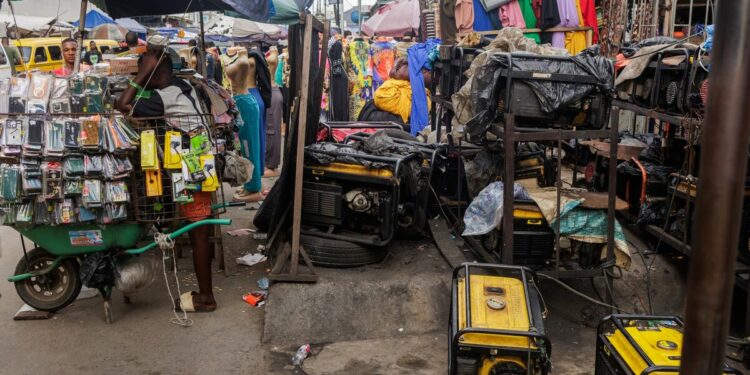Nigeria needs power to stop investors from fleeing
More needs to be done, including ensuring that consumers pay up for the electricity they use. And power suppliers will likely require additional incentives to stump up more cash, given that they’ve earned less-than-stellar returns on previous investments.
Chronic electricity shortages have been a perennial problem in Nigeria, which has Africa’s biggest economy and population.
The country has a woeful lack of generating capacity and part of the energy that is produced goes to waste because it can’t be distributed through the dilapidated grid. Electricity suppliers aren’t allowed to charge cost-reflective tariffs and struggle to collect revenue due to inadequate metering, deterring new investment.
That’s left most of Nigeria’s more than 200 million people reliant on noisy generators to power their homes and businesses. Take Lagos as an example. The chaotic commercial hub, home to some 25 million people, gets just 1,000 megawatts of electricity from the grid. Shanghai, which has roughly the same population, has access to more than 30,000 megawatts.

On Jan. 1, President Bola Tinubu said improving the power supply was a top priority and in an interview this week his energy adviser Olu Verheijen spelled out what the government has in mind.
It intends asking electricity distribution companies to raise additional equity to plug a capital deficit of about $2.2 billion, which will give them headroom to improve their services. Tariffs will also be increased with a view to increasing the liquidity and viability of the power sector.
Reforms are long overdue. While the country privatized generation and distribution in 2013, prices are set by the Nigeria Electricity Regulatory Commission and the government subsidizes companies to help recover costs that they can’t pass on to customers.
Without a tariff review, weakness in the naira — which slumped 50% against the dollar last year — and accelerating inflation could push the cost of the subsidies to 1.6 trillion naira this year from 600 billion naira in 2023, according to the regulator.
Companies are fleeing Nigeria as doing business becomes ever more difficult — Procter & Gamble and GSK were among those that closed shop last year — highlighting the need for Tinubu to tackle the energy deficit with utmost urgency.
More needs to be done, including ensuring that consumers pay up for the electricity they use. And power suppliers will likely require additional incentives to stump up more cash, given that they’ve earned less-than-stellar returns on previous investments.
Source:norvanreports


